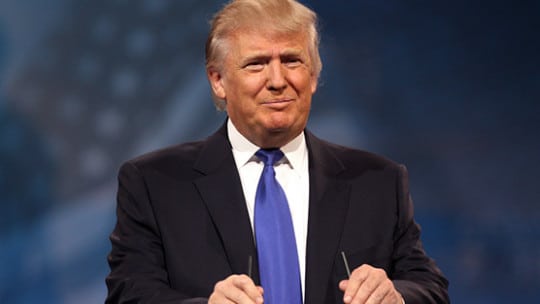
Brands are grappling with several issues that have become political with the new administration in Washington, D.C., including energy policies and immigration. Data from APCO Worldwide, shared with PRNews Pro exclusively, illustrate the complexities of the desire to buy American.
As part of its APCO Insighteffort, APCO examined Americans’ attitudes toward President Donald Trump’s Buy American, Hire American policy. The data show that in an era of globalization, Americans have overlapping definitions of what they consider to be an American company.
As the first chart shows, 48% of Americans consider a company American if it has a workforce and manufacturing facilities in the U.S., even if its headquarters is outside the states. This sentiment is strongest among Democrats, men and millennials. Conversely, women and baby boomers are unlikely to consider these companies to be American.

These results compare favorably with the fact that 53% of Americans consider a company American if it has a U.S. headquarters, even if it has substantial manufacturing facilities outside the U.S.
Interestingly, every subgroup examined, with the exception of women, agree this is an American company. It is fascinating that fewer Republicans consider a U.S.-headquartered company American compared to the foreign-headquartered company. At the same time more millennials consider this company to be American, as do generation-xers and baby boomers.

Previous APCO data show 69% of Americans support encouraging the federal government to buy American-made products, even if they cost more; 64% say they support requiring companies to use American-made materials and components in the goods – such as toys, medicines and personal computers – they sell to U.S. consumers. APCO’s research showing that people seem flexible on defining what is an American company would seem to make it more challenging for the Trump administration to communicate what these policies really mean and who benefits from them.
What is the private sector’s role in supporting American companies?
The chart below shows 56% of Americans believe U.S. companies doing business overseas should follow a buy American, hire American philosophy. There is support for this commitment across gender, age and political affiliation. Notably, Republicans, men and generation X adults are most likely to believe U.S. companies should buy and hire Americans; Democrats appear a bit more skeptical.

A plurality of Americans similarly believe that foreign companies doing business in the U.S. should also apply a buy American, hire American policy to their operations. While significantly fewer – 42%– feel this way and Americans hold more mixed feelings on this policy applying to foreign companies, it is still a significant finding. Recall that APCO found 48% of Americans consider a foreign-headquartered company an American company if it has a workforce and manufacturing facilities in the U.S. The differences in attitude are far from clear.
In addition, a majority of Republicans and men want to see global multinationals applying the buy American, hire American philosophy to their operations. On the other hand, a plurality of Democrats and women disagree.
